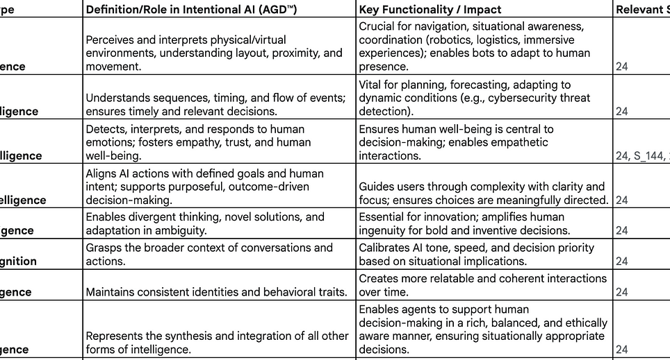Medium
1d
210

Image Credit: Medium
Google Deep Research: Intentional Intelligence in AI & Leading Research Initiatives
- Intentional Intelligence in AI signifies a shift towards understanding and aligning with human goals, fostering a more symbiotic human-AI relationship.
- It emphasizes augmenting human capabilities rather than creating autonomous superhuman machines, focusing on collaboration and human empowerment.
- Challenges in developing intentional AI include ensuring robust alignment with human intent, mitigating biases, and preserving human autonomy.
- AI systems like Klover.ai's AGD™ prioritize human-centric decision-making and enhancement of human performance.
- Intentional AI's proactive, goal-oriented agents aim to understand human intent and make autonomous decisions, such as Google's GOALIE Agent.
- Intentional AI requires a deep understanding of human cognitive and emotional states, leading to a shift from reactive to proactive AI systems.
- Efforts in intentional AI development include integrating emotional intelligence, multimodal data processing, and goal-oriented AI frameworks.
- AI alignment is crucial, focusing on steering AI systems towards intended goals while addressing inner and outer alignment challenges.
- Theory of Mind (ToM) is essential for intentional AI, allowing AI systems to understand the mental states and reasoning of humans in social interactions.
- Future advancements in intentional AI will focus on multimodal integration, biometric feedback loops, and deeper Theory of Mind capabilities.
- Overall, the development of intentional AI requires not only technical advancements but also robust ethical frameworks and societal dialogue to align AI with human values and ensure responsible innovation.
Read Full Article
12 Likes
For uninterrupted reading, download the app